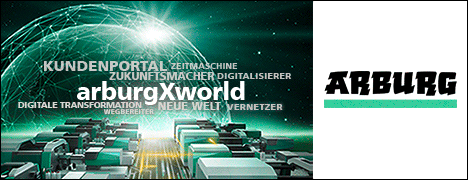plasticker-News
| 25.02.2008 | Lesedauer: ca. 5 Minuten |

|
[Die folgende Meldung liegt nur in englischer Sprache vor]
PRF: 11. Polyester Recycling Forum in Moscow
|
11th international Polyester Recycling Forum organized by Dr. Thiele Polyester Technlology, Gneuß Kunststofftechnik GmbH and CREON took place in Moscow the first time on February 12th 2008. The issue polyester recycling is relatively new in Russia. Bottle collection and sourcing of waste bottles in general are unfortunately the biggest problems in this large country. The activities of waste management are still in full responsibility of country and municipal governments and the common society conditions are under development in this respect yet. Nevertheless the high public interest was demonstrated by the number of over sixty participants. The topics of speaker contributions covered the recycling chain from general market information covered by Dr. U. Thiele (www.polyester-technology.com) via bottle collection and flake production to a variety of downstream processing methods. As mentioned the biggest problem in Russia for the time being is the development of a well accepted and efficient bottle collection infrastructure. The distribution of the message that an empty polyester bottle can be easily converted to environmental friendly products like textiles or bottles again is premature. The biggest progress in this respect one can observe within the large cities like Moscow or Leningrad. To upgrade bottle collection to a higher level a unique collection tool was introduced by the company ProfBisinessTelecom (PBT - www.fandomat.ru) a JV between the city government of Moscow and a private organization presented by A. A. Velesov. PBT developed a vending machine which is taking aluminium cans or polyester bottles spending a small amount of money to the collector. To collect data from the machines which are meanwhile installed 1600 times (short term target are 3500 units) PBT is working together with school kids and teenagers which are getting a small amount of money for this service. As a side effect the cooperation with schools is also raising the sensitivity of the youngsters for environmental issues and the value of waste. Whether this method becomes economical will be seen in the future when 3500 units are installed. Peter Meyer of S+S GmbH (www.se-so-tec.com) clearly depicted the latest technology of bottle and flake sorting with the conclusion that combination of automatic pre- and after-sorting and selection provides flakes of lowest metal and foreign polymer impurities in the range of some ppm only. The large variety of recognition sensors allows tailoring the selection process to the specific composition of the waste bottle stream. Fredy Reif of Kaeler Hodling AG (www.kaeler.com). reported about current experiences with a running flake production plant. Kaeler is assembling and operating successful bottle flake production lines in Russia. The full technology range of bottle flake production lines was introduced by Siegfried Engel of Herbold Meckesheim (www.herbold.com). One innovation of Herbold is a newly introduced power feeder to improve feeding of the loose bottles to the grinder. The newly developed device is increasing the grinder capacity to 150% and provides as side effect increased knife operation time. One mayor step of flake conversion is melt preparation and treatment. Especially adapted to the processing of PET bottle flakes Nazifa Kaluza of Gneuß Kunststofftechnik GmbH (www.gneuss.com) presented a compact technology package existing of the new Multi Rotation System (MRS) connected to automatically operating filtration and an online viscometer which allows to process PET flakes without pre-drying under synchronous viscosity control. Andreas Christel of Buhler (www.buhlergroup.com) highlighted the complexity of recycling technology at the example of the bottle to bottle process. From process logistics via process technology until project financing and procurement Buhler is caring the investor from the first planning till production and approval procedures. The key information of Ralf Herbert from Rieter-Automatik (www.rieter.com) was a process making the recycling process even more environmental friendly and simple. The new CC-PET® process is converting the polyester melt without intermediate steps directly to crystallized pellets. In this way the new process is saving about 35 kwh/t. Stefan Hoffmann of Brückner Formtec (www.brueckner.com) demonstrated Bruckners capabilities in PET recycling by a specific cast film process. Here 100% post consumer recycling is converted to a film useful in modified atmosphere packaging (MAP). Lorenzo Maldarelli of Sima S.r.l. (www.simagroup.it) explained in detailed manner the processing of PET bottle flakes directly to PET strapping products. The fast ongoing replacement of steel strapping by polyester high tenacity straps is providing an interesting outlet of PET recycling where SIMA is providing tailored processing equipment and know how. Fiber and filament production covers over 70% of the world polyester recycling conversion. To serve this industry Sabine von Bila-Natzmer of Oerlikon-Neumag (www.neumag.oerlikontextile.com) informed about a broad portfolio of fiber, filament and spunbond production processes. Especially the Neumag spinning units of lower capacity are of interest in PET flake or re-granulate processing. Last speaker of the conference Erwin Glawion of Fleissner GmbH (www.fleissner.de) allowed the public a detailed and internal few about the specific melt spinning problems of recycled polyester. The first reasons of capillary breaks and capillary fusions – two major spinning defects – are caused by melt inhomogeneities. The Fleissner compact spinning unit is designed to provide spinning melt of high quality to overcome the recycling inherent problems. |
Dr. Thiele Polyester Technology, Bruchköbel, Germany
» insgesamt 14 News über "Dr. Thiele Polyester" im News-Archiv gefunden
» Eintrag im Anbieterverzeichnis "Dienstleistungen"
Ihre News im plasticker? Bitte senden Sie Ihre Pressemitteilungen an redaktion@plasticker.de!
| » zurück zum Seitenanfang |











 Wir informieren Sie schnell, umfassend und kostenlos über das, was
in der Branche passiert.
Wir informieren Sie schnell, umfassend und kostenlos über das, was
in der Branche passiert.

